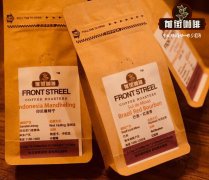The present situation of the development of coffee industry in Yunnan _ where can I sell Yunnan small coffee beans _ the output of Yunnan coffee beans

Professional coffee knowledge exchange more coffee bean information please follow the coffee workshop (Wechat official account cafe_style)
Coffee cultivation in Yunnan has a long history. In 1892, French missionary Tian Deneng came to Zhukula Village in Binchuan, Dali for missionary activities and planted the first coffee bean here. The planted coffee seed gave birth to the life of coffee for the first time in Yunnan, China. This seed became the bud of Yunnan coffee history and opened up a precedent for coffee cultivation in Yunnan. It has a history of a hundred years. In today's Zhukula village, there are still 13 mu of ancient coffee trees, of which 24 are more than 100 years old. Through many studies of coffee culture at the national and provincial level, Zhu Kula coffee is known as the "living fossil" of Chinese coffee, the oldest coffee forest in China.
The development of ● coffee industry in Yunnan has gone through four stages:
The first stage of ● was from 1952 to 1978, when coffee was grown and supplied to the Soviet Union for the sake of national strategy.
Baoshan, the earliest Coffee industrialization planting area in Yunnan Province
In the middle of the 19th century, coffee was planted in Binchuan, Lujiang Canyon, Dehong and other suitable places in Dali, but there was no scale at this time, mainly to meet the needs of missionaries.
In the spring of 1952, the scientific and technological personnel of Mangshi Branch of Yunnan Agricultural Experimental Field (now the Institute of Tropical and Subtropical Economic crops of Yunnan Academy of Agricultural Sciences) brought more than 70 kilograms of fresh fruit back to Lujiangba in Baoshan City for trial planting. It is found that the adaptability is good, the results are many, the quality is good, and it continues to grow. In the era of friendship between China and the Soviet Union, Baoshan coffee ushered in an opportunity for great development. starting from the national economic strategic development goal of coffee for the Soviet Union and Eastern European socialist brother countries, the new town and Nujiang farm in Lujiang have become the main force in the development of coffee industry. Street, Pu Piao and Luoming have also popularized coffee cultivation on a large scale. As a result, Baoshan has become the earliest area of coffee industrialization in Yunnan Province.
The second stage of ● is from 1978 to 1988, when most of the land reclamation systems tried to plant. This stage is a ups and downs stage, but also in the exploratory stage.
Until the end of the "Cultural Revolution", only the Yunnan Burma Road roadside, or farm courtyard, can still see the shadow of coffee trees. In the remote village of Jugula, for geographical reasons, the coffee saplings planted by missionaries have been sleeping quietly, waiting for those who wake them up. In 1988, in order to reduce the influence of South American coffee planting base on coffee prices, Nestl é shifted its attention from Brazil, the largest coffee grower in the world, to Pu'er, which is the same latitude as Cuba, the hometown of coffee. Bao de, the first agronomist of Nestl é, planted the first coffee tree in Meizi River and Hongxing Dam of Dehua Xiaohejiang River in Ninger County. It was not until 1990 that the coffee in Nestl é County reached the standard set by Nestl é headquarters. Some people say that Nestl é experts successfully extracted the excellent genes of Bobang and iron pickup from the old saplings of Jugula village.
The third stage of ● is from 1988 to 2008. after Nestl é entered Pu'er in 1988, Yunnan coffee entered a stable development stage, which lasted for 20 years.
The stimulation of multinational groups has finally revived the cultivation of coffee in Yunnan. By the end of 1997, the planting area of coffee in Yunnan had reached 7800 hectares, accounting for 83% of the country's output. With the gradual rise of the urban middle class in China, coffee has become a new way of life for urban white-collar workers. More multinational groups, including Maxwell and Starbucks, have also come to Yunnan.
The fourth stage of ● is after 2008, in the past 30 years, relying exclusively on agricultural initial processing, planting and export, the transition to not only agricultural exports, but also compatible with industry, brands, and constantly build and improve the industrial chain.
This stage is full of opportunities and challenges, coffee cultivation is facing the transition from traditional agriculture to modern agriculture, and it is the stage of expanding international trade and tapping the potential domestic market.
With the continuous maturity of the domestic coffee market and the domestic coffee industry chain, the planting area and output of coffee in Yunnan are also increasing. At present, coffee has been planted in Pu'er City, Baoshan City, Dehong Prefecture, Lincang City, Wenshan Prefecture, Xishuangbanna and other 9 states and 35 counties. By the beginning of 2016, China's coffee planting area exceeded 1.8 million mu, with a total output of 140000 tons, accounting for 1.5% of the global total output. Yunnan coffee planting area is 1.77 million mu, with a total output of 139000 tons, accounting for more than 99% of the country. Yunnan local coffee enterprises, such as Hougu, Lingfeng and so on ushered in the spring. After 2018, Chinese coffee consumption is bound to enter the era of blowout.
● Yunnan Coffee Brand recommendation
Qianjie Coffee roasted small seed iron card Yunnan coffee beans-[Yunnan Huaguoshan Coffee] is fully guaranteed in brand and quality. And more importantly, the performance-to-price ratio is extremely high, a pack of half a pound 227 grams, the price is only about 60 yuan. According to the calculation of 15 grams of powder per cup of coffee, a bag of coffee can make 15 cups of coffee, which costs only about 4 yuan per cup, which is recommended by conscience compared to the price of tens of yuan a cup sold in a coffee shop.
Qianjie coffee: Guangzhou bakery, the store is small but a variety of beans, you can find a variety of unknown beans, but also provide online store services. Https://shop104210103.taobao.com
Important Notice :
前街咖啡 FrontStreet Coffee has moved to new addredd:
FrontStreet Coffee Address: 315,Donghua East Road,GuangZhou
Tel:020 38364473
- Prev

Where can I find coffee beans in Yunnan? what coffee beans are produced in Yunnan? what is the quality of coffee beans in Yunnan?
Professional coffee knowledge exchange more coffee bean information please pay attention to the coffee workshop (Wechat official account cafe_style) Yunnan coffee is bound to gain its due reputation and status in the global coffee the support and guidance of the ● government is indispensable for the take-off of the industry in recent five years, Yunnan producing areas have undergone obvious changes, a small number of coffee enterprises and farmers take the initiative to enter the domestic consumer market to understand the market
- Next

Where is the origin of Yunnan coffee? how much is Yunnan coffee beans per jin? what is the flavor of Yunnan coffee?
Professional coffee knowledge exchange more coffee bean information please follow the coffee workshop (Wechat official account cafe_style) I started making coffee because I think this market is not fair to Yunnan coffee, I see my father they are too hard. This is what impresses me most about plums. Perhaps too much attention was paid to the price of large goods in the past, ignoring the treatment and quality of coffee, Yunnan coffee.
Related
- Detailed explanation of Jadeite planting Land in Panamanian Jadeite Manor introduction to the grading system of Jadeite competitive bidding, Red bid, Green bid and Rose Summer
- Story of Coffee planting in Brenka region of Costa Rica Stonehenge Manor anaerobic heavy honey treatment of flavor mouth
- What's on the barrel of Blue Mountain Coffee beans?
- Can American coffee also pull flowers? How to use hot American style to pull out a good-looking pattern?
- Can you make a cold extract with coffee beans? What is the right proportion for cold-extracted coffee formula?
- Indonesian PWN Gold Mandrine Coffee Origin Features Flavor How to Chong? Mandolin coffee is American.
- A brief introduction to the flavor characteristics of Brazilian yellow bourbon coffee beans
- What is the effect of different water quality on the flavor of cold-extracted coffee? What kind of water is best for brewing coffee?
- Why do you think of Rose Summer whenever you mention Panamanian coffee?
- Introduction to the characteristics of authentic blue mountain coffee bean producing areas? What is the CIB Coffee Authority in Jamaica?

